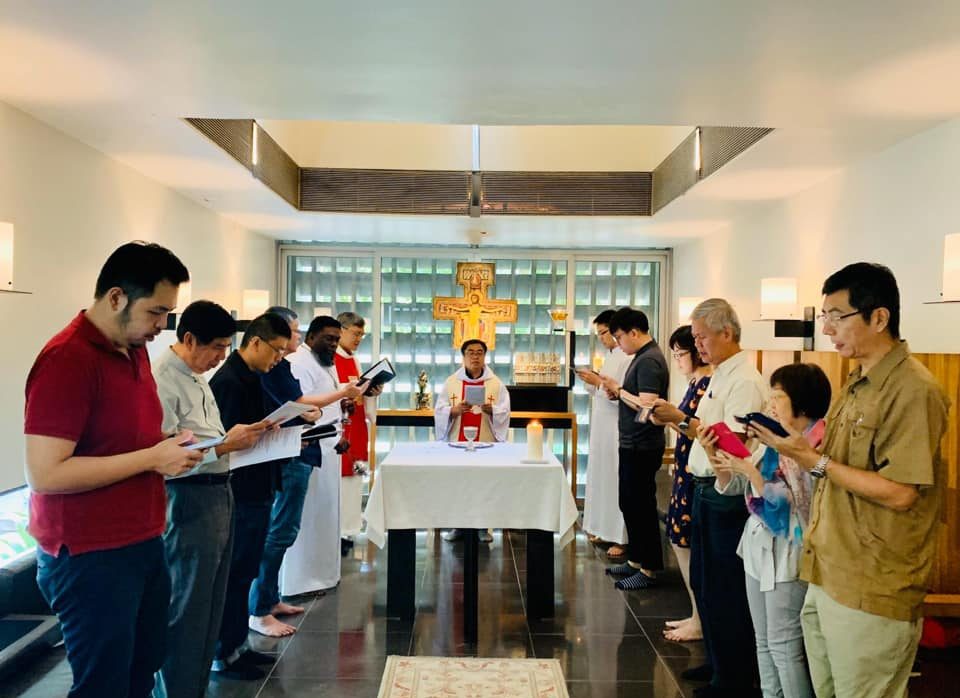The Mission and Vision of the Order of Saint Luke
The Order is a dispersed, ecumenical, religious community; lay and clergy, regardless of gender, dedicated to sacramental and liturgical scholarship, education, and practice. It was founded out of the Methodist Church and is historically grounded in the Wesleyan tradition.
Traditionally, religious orders are characterized by persons covenanting together to live in community, either physically or spiritually, under a common “Rule” of spiritual discipline. Orders have been formed to perform a specific task (a “work”), or around a discipline for spiritual growth.
The Order of Saint Luke® was formed to bring about a recovery of the worship and sacramental practice which has sustained the Church since its formation in Apostolic times. At the same time we seek to help the Church rediscover the spiritual disciplines of the Wesley’s as a means of perceiving and fulfilling the mission for which the Church was formed.
The Order of Saint Luke® was founded in 1946. Our moving and sustaining source is that vision of John and Charles Wesley who sought to bring about a sacramental as well as evangelical revival in the Church.
We are dedicated to Sacramental . . .
We magnify (lift up the importance of) the sacraments. Baptism is the sacrament, once given, which incorporates persons into the Body of Christ for service. The eucharist sustains the lives of all Christians by remembering the life-gift of Christ.
We believe that the Church is the redemptive Body of Jesus Christ, preserving and reforming His Body.
We support the commitment of the emerging undivided Church that the service of Word and Sacrament will become normative for Christian worship.
. . . and Liturgical . . .
Liturgy is the “work of the people” in offering the worship of the Church to God, in union with Christ and in the power of the Holy Spirit. This is most richly effected when the entire people may consciously, fully and actively participate. We make faithful use in all our ministries of the rites of the Church, historically and ecumenically grounded, which enable us to express our worship in unity with the universal Church.
. . . Scholarship . . .
While worship addresses the subjective part of our being, it is, first and foremost, an objective activity designed to give thanks and praise to Almighty God. We believe that we must understand the ” why” as well as the “how” if we are to lead the Church into claiming more fully its identity and mission which are God-given.
We know that the worship practices and forms of the past have value to inform and amplify our present efforts, but we are not captives of any ancient dogma. Liturgy speaks to both the objective and subjective natures when it is in the “heart language” of the people. There are many ways of worshiping. We support exploration of differing styles of worship leadership with integrity historically, ecumenically and in the local setting by both lay and clergy.
. . . Education . . .
We support the efforts of the Church-at-large to increase the full worship and sacramental education in the seminaries.
Additionally, we offer opportunities for learning through annual Retreats which bring together leading scholars in these fields.
Our peer-reviewed journal, Doxology, publishes new works by contemporary theologians which address current trends and developments in liturgical and sacramental theology. It has been expanded to also address everyday praxis though “reports from the field” in liturgical development based on actual experience in local churches.
In addition, The Order has made major contributions to the exploration of Pastoral Offices with the publication of liturgical resources for the Daily Office, for Feasts and Holy Days, for occasional services. It has also published a Lukan Psalter.
. . . and Practice . . .
We believe that the sacraments provide spiritual nourishment that empowers us to live a positive and healing witness before the world.
We will share in the celebration of the sacraments with frequency and regularity and offer continuing instruction in their meaning and implication.
As Christians seek to strengthen their spiritual lives, they often feel alone, as if they were the only ones in the struggle. The Order of Saint Luke seeks to assist persons to grow closer to God through a life of discipline which includes, among other things spiritual formation.
We believe we are formed or shaped by our intentional experiences in faith. These are found in corporate worship, community and individual retreats, devotional exercises of prayer, music or other intentional exercise. The Order of Saint Luke brings together these disciplines for our members and invites them to Lukan spiritual formation.
